stingray
Latest
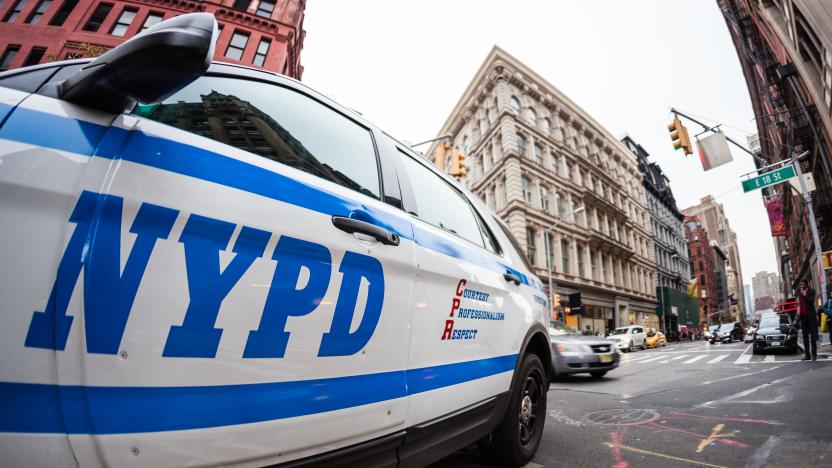
NYPD secretly spent $159 million on surveillance tech
Documents show the department paid millions for facial recognition, vans equipped with x-ray machines and more.
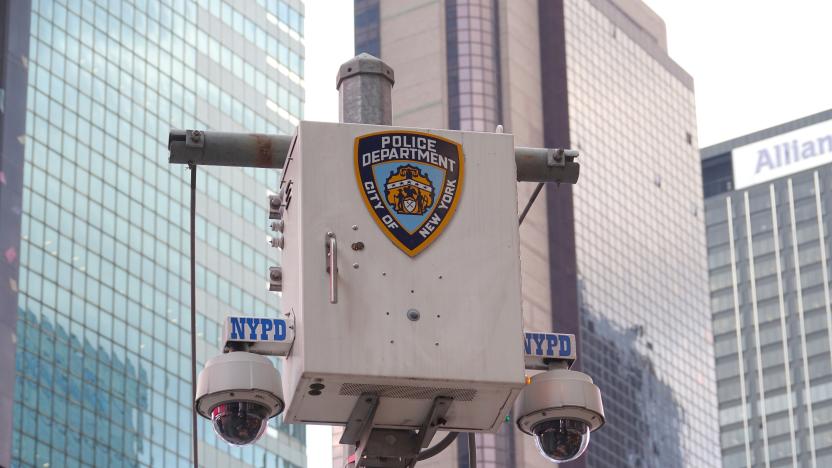
NY City Council passes NYPD surveillance oversight bill
In a 44-6 vote on Thursday, the NYC City Council voted in favor of passing the POST Act, which will empower civilian oversight of the NYPD's sprawling surveillance state.
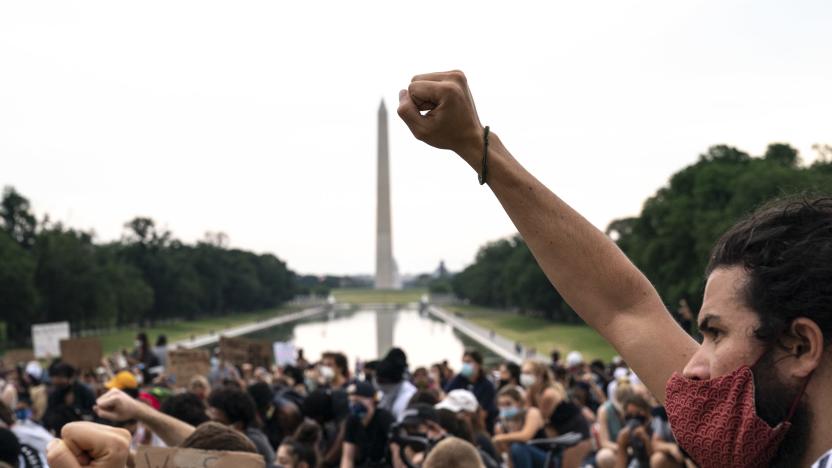
How to protect your identity while protesting police brutality
As protests around the country against police brutality continue to expand, law enforcement's reaction grows ever more heavy-handed. Here are some ways to protect yourself and your identity.

Security flaws in 4G and 5G allow snooping on phone users
Security researchers are already poking holes in 5G mere months into its existence. They've discovered three flaws in 4G and 5G that could be used to intercept phone calls and track someone's location. The first and most important, Torpedo, relies on a flaw in the paging protocol that notifies phones of incoming calls and texts. If you start and cancel several calls in a short period, you can send a paging message without alerting the device to a call. That not only lets you track the device's location, but opens the door to two other attacks.

Senator asks FCC if Stingrays can interfere with 911 calls
Senator Ron Wyden (D-OR) wants to know if cell-site simulators, also known as Stingrays, have the potential to interfere with mobile communications, and he's asked the FCC to share any research it has done into the matter. In a letter sent to Chairman Ajit Pai today, Wyden asked what steps the agency had taken to ensure the devices -- which track mobile devices by mimicking cell towers -- don't interfere with the communications of targeted and non-targeted devices or calls to 911, specifically. "The FCC has an obligation to ensure that surveillance technology which it certifies does not interfere with emergency services or the mobile communications of innocent Americans who are in the same neighborhood where law enforcement is using a cell-site simulator," he wrote.

Supreme Court ruling requires search warrant for phone location data
The Supreme Court has ruled (PDF) that to perform cellphone tower searches, police will now need a search warrant, as spotted by NPR. Meaning, that now for law enforcement to track where you've been, via historical cellphone location data, will require a judge's approval. Basically, the decision upholds that the Fourth Amendment will continue to protect you from unreasonable searches and seizures.
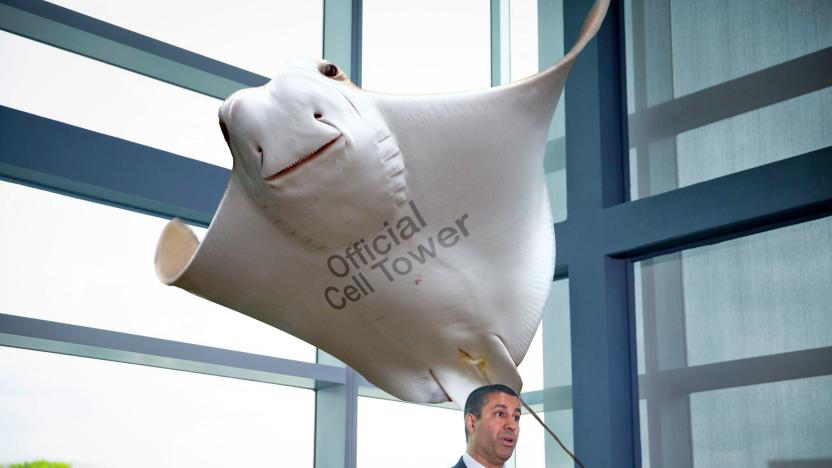
FCC shrugs at fake cell towers around the White House
Turns out, Ajit Pai was serious last year when he told lawmakers that the FCC didn't want anything to do with cybersecurity. This past April the Associated Press reported "For the first time, the U.S. government has publicly acknowledged the existence in Washington of what appear to be rogue devices that foreign spies and criminals could be using to track individual cellphones and intercept calls and messages."

US Congressmen ask FCC to combat unauthorized Stingray use
Earlier this week, reports surfaced that the Department of Homeland Security (DHS) had detected activity in Washington DC that was consistent with the use of cell-site simulators, or Stingrays. The findings were a result of a short-term trial that took place last year and they suggest that foreign powers could be using these unauthorized devices to monitor officials, travelers and residents in the US capital. In a letter to Senator Ron Wyden, the DHS said that it didn't have the resources to continuously monitor the use of such devices but it did share its findings with "federal partners." Following those reports, three US Representatives have now sent the FCC a letter demanding the commission take action against unauthorized Stingray use.
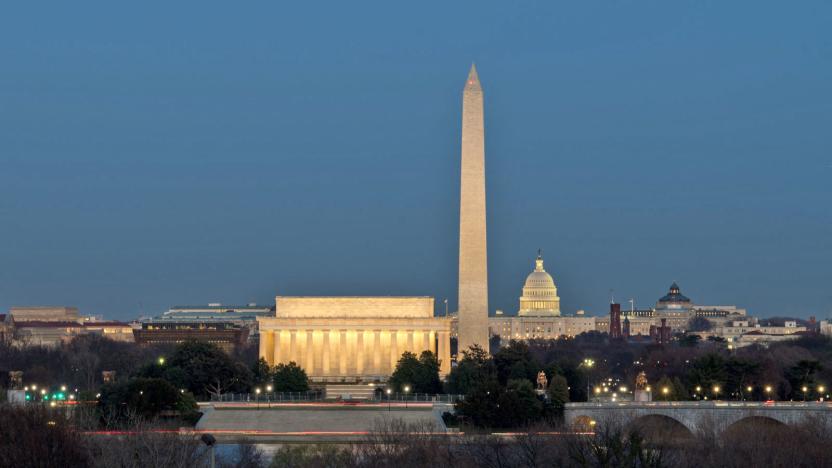
DHS may have found unauthorized Stingray devices in Washington DC
The Associated Press reports today that the Department of Homeland Security (DHS) has confirmed that it found what appear to be unauthorized cell-site simulators, also known as Stingrays, in Washington DC last year. The agency told Senator Ron Wyden in a letter that it had found "anomalous activity" consistent with these sorts of devices in the Washington area and a DHS official told the AP that the findings were obtained through a 90-day trial that began in January of last year. Senator Wyden sent the DHS a letter last November requesting information on the use of cell-site simulators by foreign intelligence services.

Judge rules NYPD needed a warrant before using cell-site simulator
A Brooklyn judge has ruled that because the New York Police Department (NYPD) used a cell-site simulator, also known by the brand name Stingray, to track down a murder suspect without a warrant, some evidence against the suspect will be thrown out. As the New York Times reports, the NYPD initially denied using such a device in this case, but later conceded that it had. Following the suspect's arrest, he was picked out of a lineup by another victim, and that's what is being tossed out.

Court rules Stingray use without a warrant violates Fourth Amendment
Today, the Washington DC Court of Appeals overturned a Superior Court conviction of a man who was located by police using a cell-site simulator, or Stingray, CBS News reports. The court ruled that the defendant's Fourth Amendment rights were violated when law enforcement tracked down the suspect using his own cell phone without a warrant.
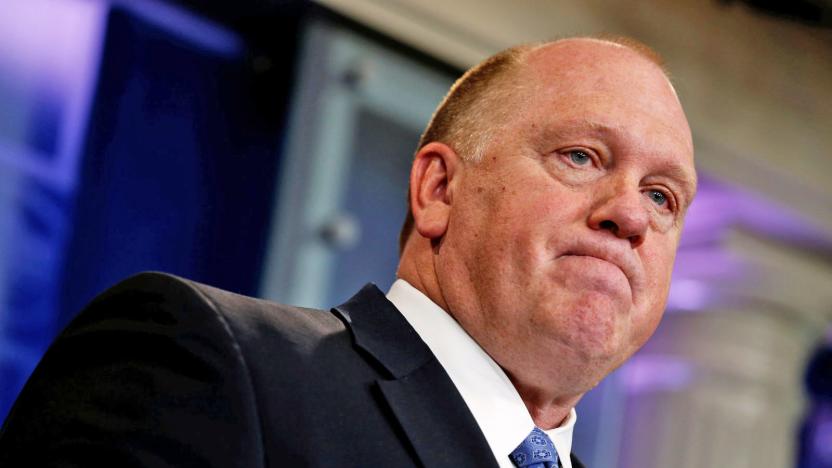
ICE insists it doesn’t use Stingrays to track undocumented immigrants
In a letter (PDF), the acting director of the Immigration and Customs Enforcement (ICE) said that the agency doesn't use its Stingray mobile call-intercepting devices while enforcing immigration laws. It does deploy them when pursuing criminal suspects, however, and individual agents might use them while acting in a joint task force with other federal officers.

Researchers use rideshare vehicles to uncover stingray use
It's a badly kept secret that law enforcement uses fake cell phone towers, called stingrays, that can track phones and eavesdrop on communications. But one research team has taken it upon themselves to sniff them out -- and at a reasonable cost, reports Wired. A group of Seattle-based researchers paid fifteen different rideshare service drivers $25 a week each for two months to drive around with a custom-made device in the back of their car. Called SeaGlass, it had a Raspberry Pi computer, a hotspot, an Android phone, a GPS module and a GSM modem. All totaled, each suitcase-sized box had about $500 worth of equipment inside. The team's mission was to map every cell tower that connected to both the modem and Android phone while the cars were driving through the city.
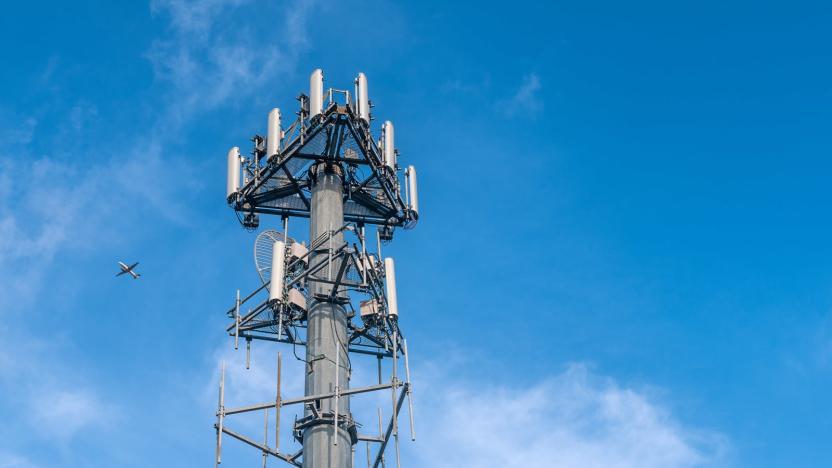
Federal agents used a Stingray to track an immigrant's phone
Investigators from Immigration and Custom Enforcement as well as the FBI have been using controversial cell-spoofing devices to secretly track down undocumented immigrants, court records show. According to a report the Detroit News, which obtained an unsealed federal search warrant affidavit, FBI and ICE agents in Michigan used a Stingray device to ensnare a restaurant worker from El Salvador in March. The devices, which were originally intended for counter-terrorism use, have come under fire because there are currently no clear rules governing when law enforcement is allowed to deploy them. Even in cases where authorities have a clear target in mind, they run the risk of exposing personal information of other innocent people in range.

House bills would ban warrantless use of fake cell sites
House representatives are making good on their plans to implement clearer cellphone surveillance laws. A bipartisan group (led by House Oversight Committee chair Jason Chaffetz) has put forward two bills that would keep the use of Stingrays and other cell site simulators in check. The most prominent, the Cell Location Privacy Act, would require that law enforcement get a probable cause warrant before using one of these fake cell sites to track suspects. There would be exceptions for "exigent circumstances" and foreign intelligence gathering.

House committee calls for clear cellphone surveillance rules
Stingrays -- those cellphone surveillance devices preferred by law enforcement agencies -- definitely broke into the mainstream public consciousness this year. And while the word is out that law enforcement agencies from California to New York have used the devices to monitor citizens for years, a new report (PDF) from the bipartisan House Oversight and Government Reform Committee shows that the rules governing their usage can vary greatly from state to state or even department to department. As a result, committee chairman Jason Chaffetz (R-UT) and member Elijah Cummings (D-MD) are calling on Congress to establish "a clear, nationwide framework that ensures the privacy of all Americans are adequately protected."

Set up your own Stingray cell dragnet with these leaked docs
The Stingray has been a controversial tool that police departments and government agencies have used to track mobile phone locations and monitor the metadata they send to cell towers. Its maker Harris Corporation has repeatedly denied requests to explain its inner workings, citing terrorist and criminal security concerns despite their frequent use without warrants. But The Intercept has acquired over 200 pages of documentation detailing several communication-intercepting setups of the company's hardware and software.
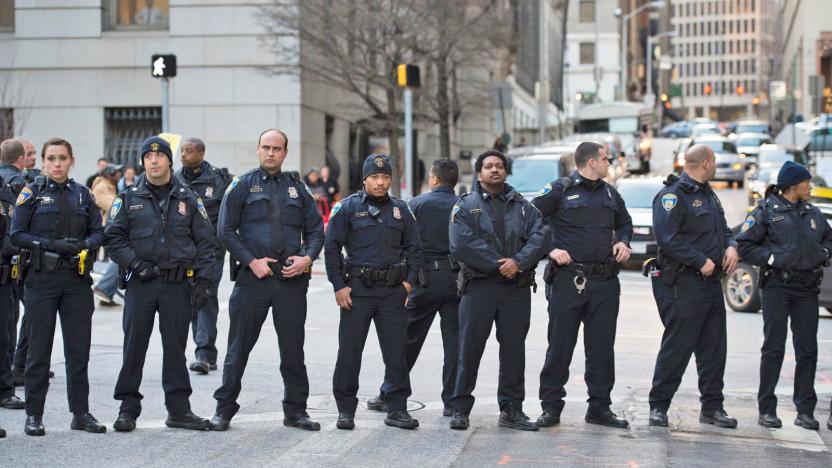
Baltimore PD's phone surveillance allegedly violated FCC rules
A new legal complaint filed by a Georgetown Law professor claims that law enforcement agencies using Stingray cell-site spoofing devices are in violation of standard FCC rules because they don't have the proper spectrum licenses to operate the equipment. The complaint, filed by professor Laura Moy on behalf of three different advocacy groups, specifically calls out the Baltimore Police Department for violating the Communications Act, blocking emergency 911 service and disproportionately affecting African American neighborhoods in Baltimore.
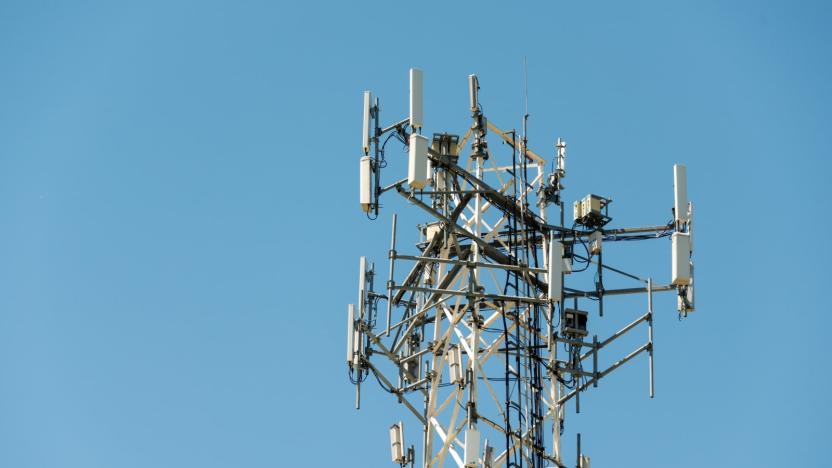
Local Canadian police station admits it owns a Stingray
The Edmonton Police Service has fessed up to Motherboard that it owns a Stingray and that it "used the [surveillance] device in the past during investigations." After Vancouver cops admitted to using the phone tracker to investigate an abduction in 2007, the publication called up other local police stations in Canada to ask if they had also previously used one. As you can imagine, the other stations kept mum. In the US, Stingrays are a regular part of government and law enforcement agencies' surveillance arsenal. But Vancouver's and Edmonton's police services are the first law enforcement offices in Canada to confirm that they've used the device.

Federal judge throws out evidence obtained by 'stingray' trackers
A federal judge has taken a stand against the use of "stingray" -- cell phone baiting surveillance devices used by the police and other government agencies. District Judge William Pauley decided to suppress evidence obtained by the stingray setup, ruling earlier this week that the defendant Raymond Lambis, charged in connection to a drug trafficking probe, had his rights violated when surveillance equipment was used without a warrant. The Drug Enforcement Administration used the tracker to find Lambis' apartment by pinging the defendant's cell phone, revealing his location down to the apartment number. "Absent a search warrant, the government may not turn a citizen's cell phone into a tracking device," Pauley wrote in the ruling.









